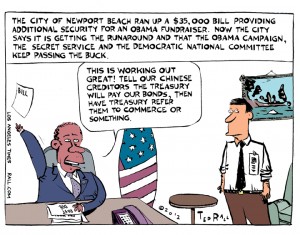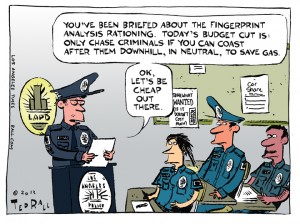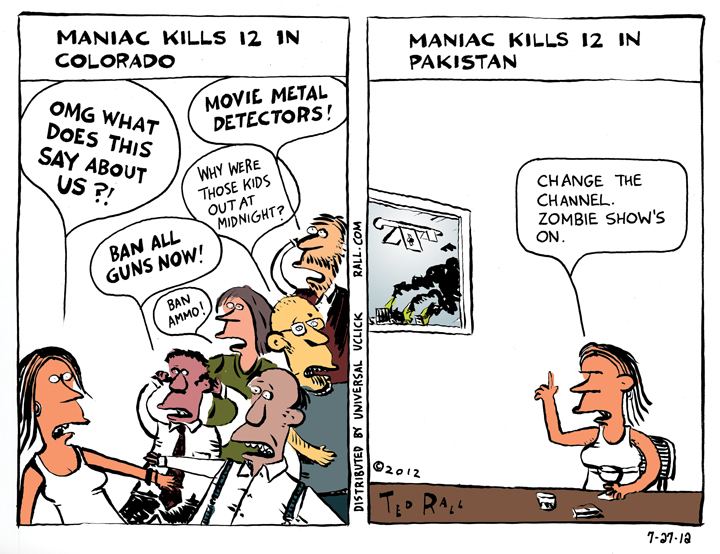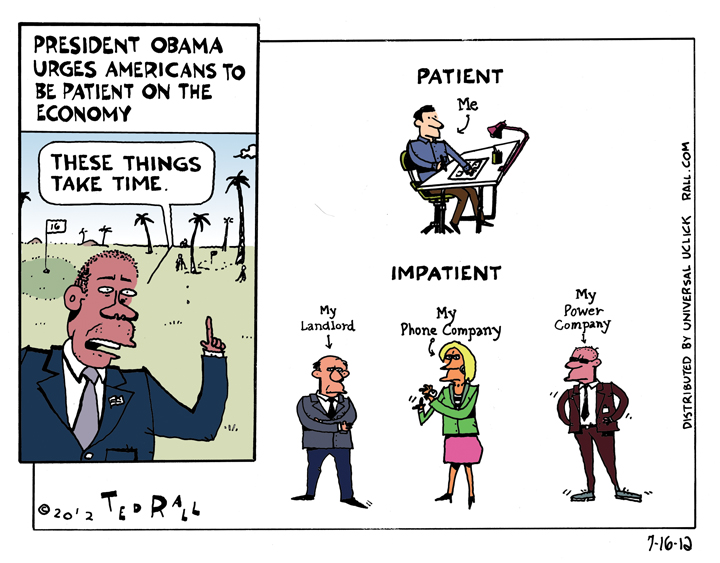I draw cartoons for The Los Angeles Times about issues related to California and the Southland (metro Los Angeles).
I draw cartoons for The Los Angeles Times about issues related to California and the Southland (metro Los Angeles).
This week: The city of Newport Beach ran up a $35,000 bill providing additional security for an Obama fundraiser. Now the city says it is getting the runaround and that the Obama campaign, the U.S. Secret Service, and the Democratic National Committee keep passing the buck.







